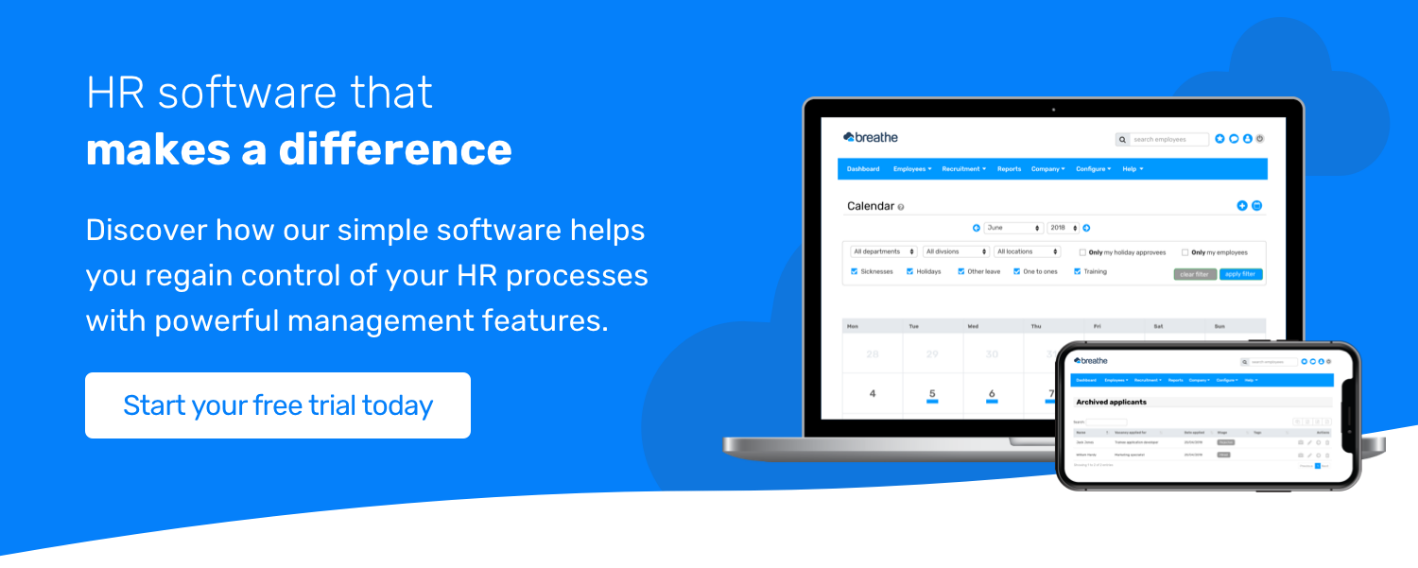What are behavioural competencies - and how can getting to grips with them help to understand your people and boost their development?
In this blog, we'll take a look at examples of behavioural competencies & how they can be helpful to boosting the success of your SME.
What are behavioural competencies?
In a nutshell, behavioural competencies can be defined as someone's strengths in a business setting - including their skills, knowledge & attitude. Your team will have different skills and behavioural strengths, which can be used to predict future workplace success.
You may already be looking at your team's behavioural competencies without even realising it. For example, when you're recruiting for a role, you'd usually create a list of desirable skills needed for the role (such as good customer-facing skills or analytical skills). This is already an example of thinking about behavioural competencies at work.
Certain competencies will be more important in some roles than in others. If you have sales consultants, then a great telephone manner might be more important than strong organisational skills, which might be beneficial for someone in a personal assistant role.
As a small business tracking those behavioural competencies can be quite tricky because there is no cast-iron method of measuring them. They are not quite as tangible as targets, for example. However, they play an important role in workforce planning, recruitment, training and development.
What is an example of a behavioural competency?
Behavioural competencies can fall into different categories:
- Individual competencies
Personal qualities would fall under this banner such as an employee’s decision-making skills, analytical skills, confidence, self-motivation and critical thinking. It can also covers their professionalism and attitude to work. - Interpersonal competencies
Things such as their ability to work in a team, their communication skills, their ability to recognise diverse opinions, reduce conflict and promote harmony would fall under this category. - Motivational competencies
The ability to motivate others, to lead others by example or to take the initiative. - Managerial competencies
These might include leadership skills, strategic planning, managing teams and people, and analytical abilities. - Analytical competencies
Data analysis, problem-solving abilities, ease with working with numbers and technical knowledge would all be considered under the analytical heading.
There is plenty of cross over between the different categories with a number of abilities or skills fitting under more than one.
How to use behavioural competencies at work
There are lots of situations where behavioural competencies can prove useful within your business.
- A common language
If you can define the behavioural competencies that are important to your business, then your people will understand and you've created a definition. Behavioural competencies essentially tie into your business values and vision - what you want to reflect into the world (as well as inside the office walls). - Objective recruitment
Based on your experience of particular roles, you’ll know what competencies are needed for someone in that role to be successful. You can then draw up a list of the necessary competencies for use in the selection process. -
Development & assessing potential
If you identify successful attributes and competencies required for outstanding performances by your staff, you can start creating a measure you can assess them against. You can then benchmark your team and plan their development activities. This can all be monitored through their appraisals - and may also help identify progression opportunities, too. - Career development
Behavioural competencies can help form the basis of a logical career progression by highlighting the attributes staff should have to move into a new role. They can also help staff identify transferable skills.
Behavioural competencies in your SME
Chances are you're already looking at the behavioural competencies of your team without realising it. Remembering to focus on the qualities and skills you need for certain roles could help when recruiting.
Find out how Breathe's recruitment module can streamline your recruitment process by taking out a free trial today.

Author: Aimée Brougham-Chandler
An IDM-certified Digital Copywriter as of February 2023, Aimée is Breathe's Content Assistant. With a passion for guiding readers to solutions for their HR woes, she enjoys delving into & demystifying all things HR: From employee performance to health and wellbeing, leave to company culture & much more.




